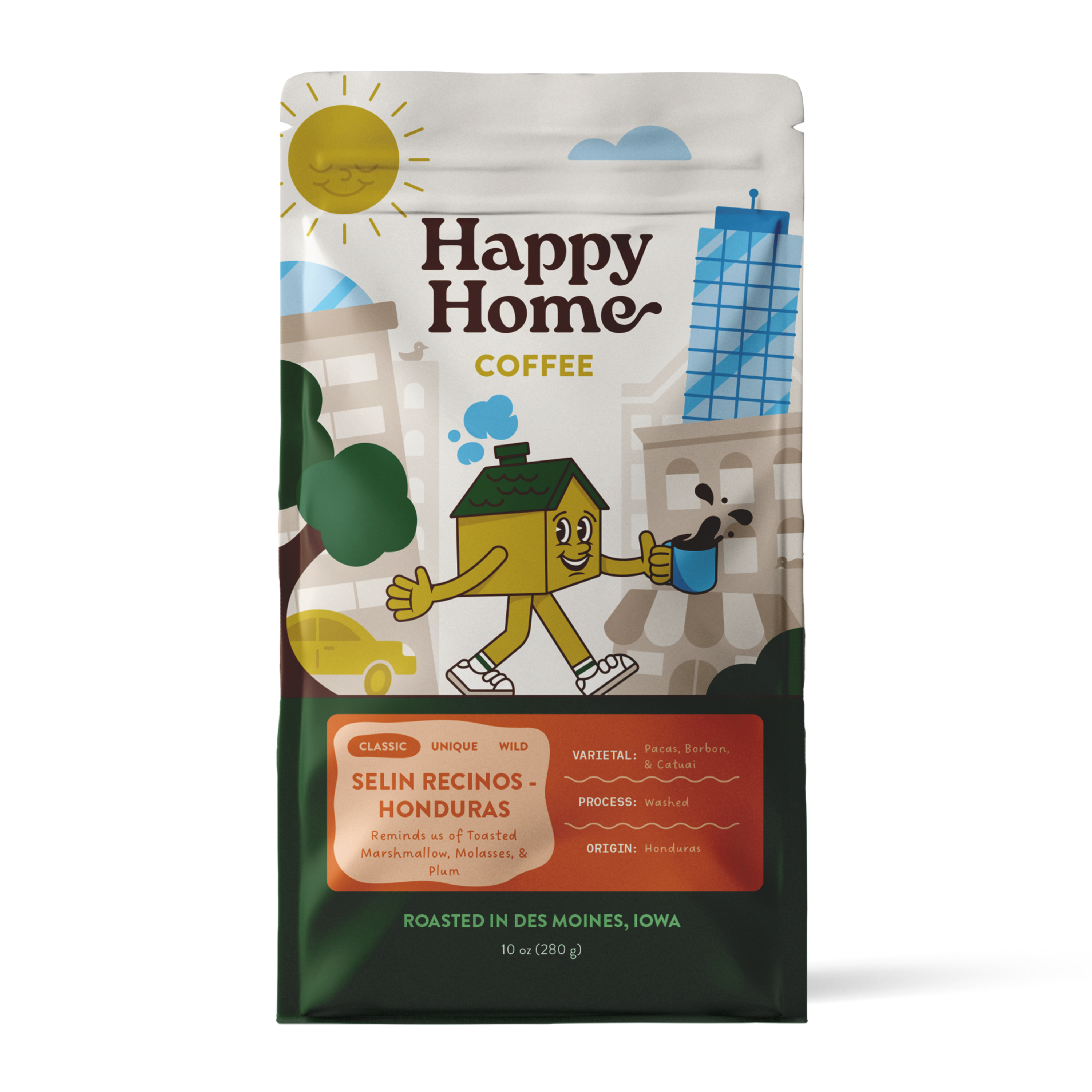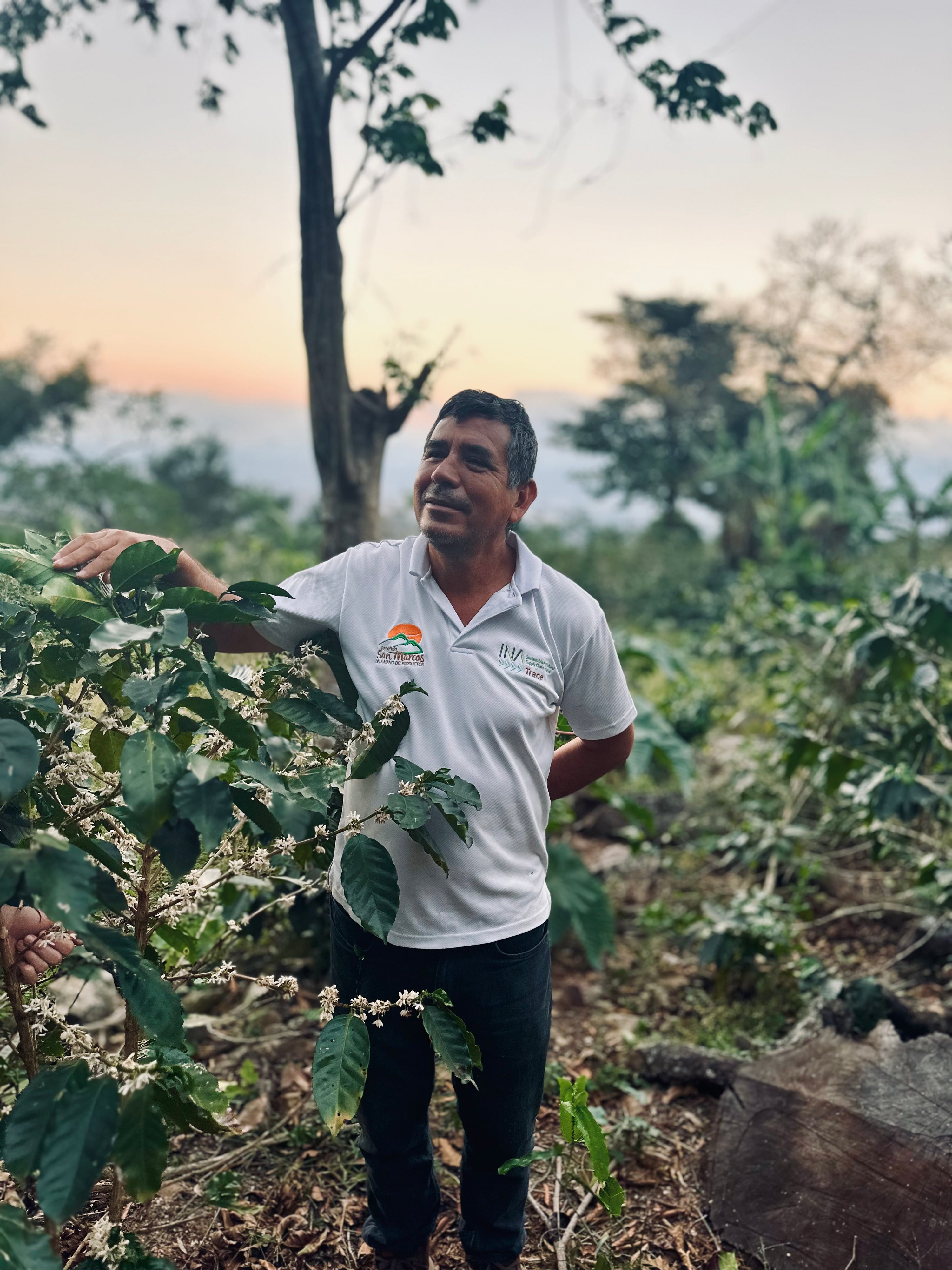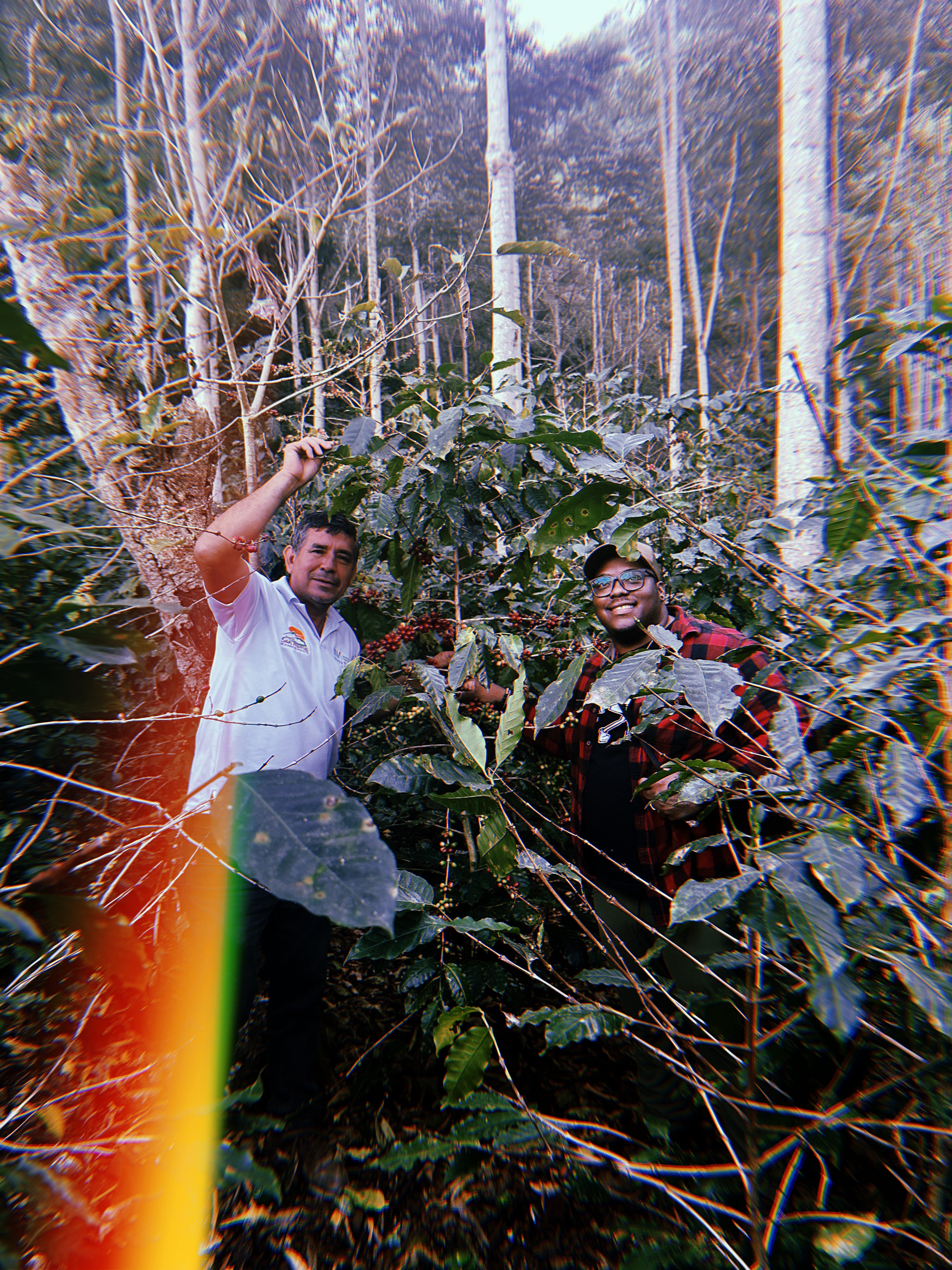Selin Recinos - Honduras
Selin Recinos
This is a coffee that any coffee drinker will love. It’s super versatile and good with cream and sugar or black. When we drink this coffee it reminds us of Toasted Marshmallow, Molasses, and Plum
Farm: Finca La Guadalupe
Producer: Selin Edgardo Recinos
Location: La Labor, Ocotepeque, Honduras
- Elevation: 1,500 to 1,750 masl
- Soil Type: Volcanic Soil
- Shade Density: 75%
- Coffee Varieties: Pacas, Borbon, & Catuai
- The farm also has Caturra, Parainema, Typica, Yellow Catuai, Maragogype varietals separated by lot
*All orders are roasted, packaged, and shipped within 5-8 business days from the date of purchase
History: Started by Selin Recinos’ Parents, Selin Recinos Sr. & Petrona Perez over 40 years ago as a small plot which they hoped would help them and their family prosper. Slowly but surely through their hard work and dedication the small plot grew and is now part of a legacy that spans four families all descended from Selin & Petrona.
Selin Jr.’s love for coffee & agriculture can be appreciated by his commitment to growing high quality coffee in a sustainable manner, minimizing water use, protecting the wildlife on his farms and constantly planting new trees. In 2003 he participated in the first coffee competition, a precursor to cup of excellence, and won 4th place. He has participated in many competitions since and his coffee is always highly regarded.
Selin Jr.’s took over his family’s farm after his father’s passing and now looks after the well being of his mother and in addition to managing his own farm also looks after his sister’s lands. Selin’s wife Blanca is a Cupper and together they continue the legacy of quality and sustainability that started in La Labor long ago.
Processing:
Selin’s Harvest is usually a 4 month affair, with small teams of experienced pickers walking the farm from bottom to top as ripenning climbs up the farm’s elevation. This process is repeated 4-8 times depending on the lot and maturity levels at different points in the harvest, ensuring to pick a very high percentage of fully ripe cherries. In general we have seen above 95% of Selin’s daily picks to be at this optimal ripeness, this key point in the process sets the stage for the quality of Selin’s coffee.
Selin’s wet micro-mill is located in his home with one concrete fermentation tank and a classification channel. The residual water is oxidized appropriately in lagoons before reintegrating into the land, and Selin also runs his own vermicompost operation where he includes Mountain Micro-organisms to not only boost the nurtituional profile of the compost but also reduce the pressence of other bacteria in the composting process.
Selin’s coffee is typically wet processed the same day or the next morning after picking depending on the weather. The coffee is placedin a siphon to remove floaters and low density cherries as well as seperate rocks and leaves from the cherries. From the siphon the coffee goes to a depulping machine and into the fermentation tanks, where it ferments openly for 24-36 hrs. It is then rinsed twice and then passed through the selection channel, where only the highest density beans are selected for this lot.
All of Selin’s coffee is slow dried on a patio in stages. The first stage, oreado or browning, reduces humidity to 30% and is typically done in 1-3 days, after this the coffee is typically picked up for a day or two to rest and then enters its second drying stage. This stage will typically take 5 days with the coffee being picked up the coffee at least once a day during that time to ensure it doesn’t overheat and a slow even drying is completed. At the end of the 2nd stage Selin’s coffee is at 15% and now can be stored for 1-2 weeks without the risk of getting moldy. In the 3rd stage Selin then further lowers the humidity to 11.5% in about 2-3 weeks. At this point the coffee is ready to rest for an additional 30-60 days before being dry milled for export.




